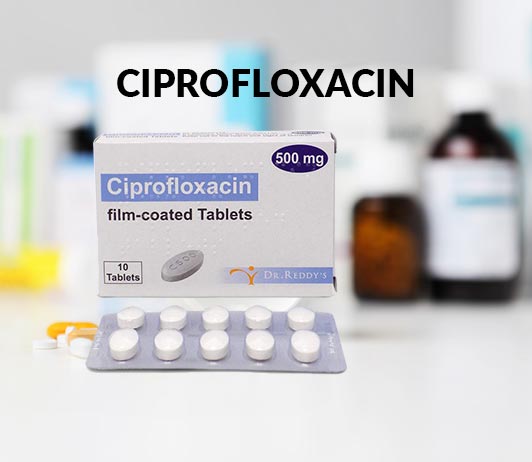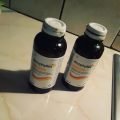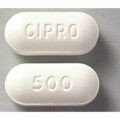Ciprofloxacin is a fluoroquinolone antibiotic commonly used to treat bacterial infections such as urinary tract infections, pneumonia, and skin infections. While it is generally a safe and effective medication, it can also cause a range of side effects that can be very uncomfortable and even disabling.
If you have taken ciprofloxacin and are experiencing side effects, there are steps you can take to help recover and reduce the severity of your symptoms. In this article, we will discuss in detail how to recover from ciprofloxacin side effects.
What are the side effects of ciprofloxacin?
Before we delve into how to recover from ciprofloxacin side effects, let’s briefly go over some of the most common side effects associated with this medication. These can include:
- Nausea and vomiting
- Diarrhea
- Headache
- Dizziness
- Insomnia
- Rash or itching
- Abdominal pain
- Joint or muscle pain
- Tendonitis or tendon rupture (especially in those over 60 years old or taking corticosteroids)
- Photosensitivity (sensitivity to sunlight)
- Changes in taste or smell
While these side effects are generally mild and go away on their own, some people may experience more severe or persistent symptoms that can last for weeks or even months. These can include:
- Peripheral neuropathy (nerve damage that can cause pain, tingling, and numbness in the hands and feet)
- Anxiety, depression, or other mental health problems
- Tinnitus (ringing in the ears)
- Vision changes or eye problems
- Liver or kidney damage
- Heart problems
If you are experiencing any of these more severe or persistent side effects, it is important to seek medical attention right away.
How to recover from ciprofloxacin side effects
If you are experiencing side effects from ciprofloxacin, there are several steps you can take to recover from ciprofloxacin side effects they include:
Step 1: Consult with Your Doctor
If you are experiencing side effects from ciprofloxacin, the first step you should take is to consult with your doctor. Your doctor will be able to assess your symptoms and determine the best course of action. Depending on the severity of your side effects, your doctor may advise you to stop taking ciprofloxacin or switch to a different medication.
Step 2: Stop Taking Ciprofloxacin
If your doctor advises you to stop taking ciprofloxacin, you should follow their advice. It is important to stop taking the medication as soon as possible to avoid further damage or complications. Your doctor may also prescribe alternative treatments or medications to help manage your symptoms.
Step 3: Rest and Recover
Resting and allowing your body time to recover is essential to recovering from ciprofloxacin side effects. Depending on the severity of your symptoms, you may need to take time off work or reduce your activity levels. It is important to listen to your body and not push yourself too hard, as this can prolong your recovery time.
Step 4: Stay Hydrated
Drinking plenty of fluids is essential to recovering from ciprofloxacin side effects. This is particularly important if you are experiencing diarrhea or vomiting, as these symptoms can cause dehydration. Drinking water, herbal tea, and electrolyte-rich beverages such as coconut water can help to replenish fluids and electrolytes lost due to diarrhea and vomiting.
Step 5: Eat Nutritious Foods
Eating nutritious foods is important for helping your body recover from ciprofloxacin side effects. Focus on eating whole, nutrient-dense foods such as fruits, vegetables, whole grains, lean protein, and healthy fats. Avoid processed foods, sugary drinks, and alcohol, as these can exacerbate your symptoms and slow down your recovery.
Step 6: Manage Pain and Inflammation
If you are experiencing pain and inflammation due to ciprofloxacin side effects, there are several things you can do to manage these symptoms. Over-the-counter pain relievers such as ibuprofen and acetaminophen can help to reduce pain and inflammation. Applying ice packs or warm compresses to the affected area can also help to alleviate pain and inflammation.
Step 7: Practice Gentle Exercise
Gentle exercise such as stretching, yoga, and walking can help to promote circulation, reduce inflammation, and alleviate pain. However, it is important to avoid high-impact activities such as running and jumping, as these can exacerbate symptoms of tendonitis and tendon rupture.
Step 8: Consider Physical Therapy
If you are experiencing tendonitis or tendon rupture due to ciprofloxacin side effects, physical therapy may be recommended to help you recover. A physical therapist can develop a customized exercise program to help you regain strength and flexibility in the affected area. They may also use techniques such as ultrasound and massage to help reduce inflammation and promote healing.
Step 9: Consider Alternative Treatments
There are several alternative treatments that may help to alleviate ciprofloxacin side effects. Some of these include:
- Acupuncture: Acupuncture involves the insertion of fine needles into specific points on the body to stimulate healing and reduce pain.
- Chiropractic care: Chiropractic care involves the manipulation of the spine and other joints to promote healing and reduce pain.
- Massage therapy: Massage therapy involves the manipulation of soft tissue to reduce pain, improve circulation, and promote healing.
- Herbal remedies: There are several herbs that may help to alleviate ciprofloxacin side effects, such as ginger for nausea and turmeric for inflammation.
It is important to consult with a qualified practitioner before trying any alternative treatments to ensure they are safe and effective.
Step 10: Practice Self-Care
Practicing self-care is essential to recovering from ciprofloxacin side effects. This may involve getting enough sleep, reducing stress, and taking time for activities that bring you joy and relaxation. Self-care can help to reduce inflammation, promote healing, and improve your overall well-being.
Conclusion
Recovering from ciprofloxacin side effects can take time and patience. It is important to consult with your doctor, rest and allow your body time to recover, stay hydrated, eat nutritious foods, manage pain and inflammation, practice gentle exercise, consider physical therapy and alternative treatments, and practice self-care. By taking these steps, you can help to alleviate your symptoms and promote healing. It is important to listen to your body and not push yourself too hard, as this can prolong your recovery time. With time and care, you can recover from ciprofloxacin side effects and regain your health and well-being.
SEE: How Long Does Plenvu Make You Poop?






